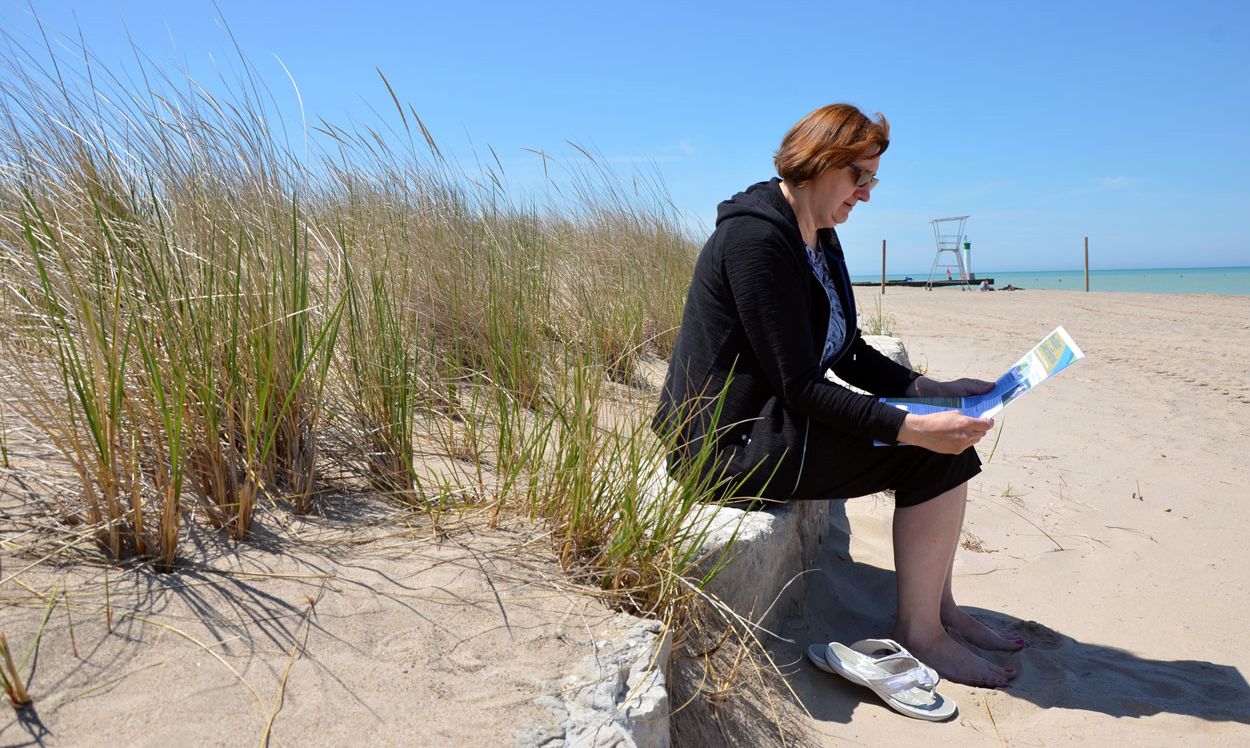Survey on beach, dune grasses

Researchers at University of Waterloo invite you to take part in survey about beach and dune grasses
This post is shared with you on behalf of researchers at the University of Waterloo.
Beach and dune grasses provide many benefits to humans that interact with the Lake Huron coastal environment. Its growth along the shoreline helps to maintain sand dunes, which are extremely important components of the Great Lakes coastal system because they protect land from flooding and are habitat for many native plants and animals. If the beach and dune grasses are lost or removed, then the shoreline can become unstable, and this affects people, other ecosystems and infrastructures.
In order to protect these grasses, researchers at the University of Waterloo are asking for help from people like you.
Charlotte Hings, BSc AgEnvSc. and Masters Candidate at the University of Waterloo School for Environment, Resources and Sustainability, at chings@uwaterloo.ca, and her colleagues, are conducting research to better understand the human-environment interactions between people and the Lake Huron shoreline by examining the benefits people receive from beach grass, how they perceive and interact with it and gaining insights on how to better manage beach grass along the Lake Huron shoreline for the betterment of people and the environment. To do this, the researchers are conducting a short online or phone survey with local property owners and beach visitors to understand their perspectives on these benefits.
The survey aims to understand how you interact with beach grass along the shoreline and the benefits you receive from its presence. It should take no more than 10 minutes to complete.
With a better understanding of these interactions, how they are changing and how this is impacting the social well-being of people who interact with the shoreline, more effective protection and conservation methods for the fragile beach-dune ecosystems of Lake Huron can be developed.
If you are interested in taking part or would like to receive more information on this research, please contact Charlotte Hings by email at chings@uwaterloo.ca or by phone at 1-514-261-2677.
To find out more please download this letter about the survey:
